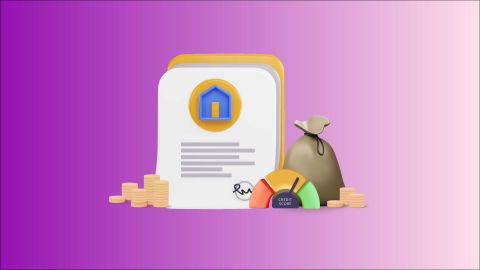Investing in a new home is one of the most important decisions you’ll make. The first two questions that come to your mind could be ‘How do I actually afford it?’ and ‘How will I manage to buy a home?’ Fortunately, getting a home loan is quite an easy process. You just need to be aware of the technicalities and be sure of what you’re looking for.
Here are a few tips for buying a home and making sure your investment is worth every rupee.
Improve Your CIBIL Score
CIBIL score is a calculation of how safe you are as a borrower. It’s fairly simple to maintain a good credit score Pay your bills on time, don’t max out your credit cards, and clear off any outstanding debts. If you have your finances in order, your credit score will give the lender a good idea of how you’ll handle your home loan.
Shortlist Your Options
This applies to two things: your house and your home loan. Don’t mindlessly go through countless property brochures and home loan offers. Pick your best options and approach only those builders and financial institutions that meet your needs.
Additional Read: Applying for a Home Loan? Tackle these 6 Problems
Buy What You Can Afford
Just because you’re opting for a home loan, that doesn’t mean you can actually buy the costliest house on your list. You still have to put in money for a down payment and you still need to clear out EMIs every month. Calculate your tentative EMI amount and see if it fits within your monthly budget.
Get Pre-Approval
Pre-approval lets you book a home even before your loan amount is sanctioned. If you have a good enough credit score, the bank can deem you eligible for a set amount of money. This pre-approval is valid for a good enough time period, usually around 6 months. If you get this done before you even start searching for a home, you can peacefully go about the process of booking your home and getting the loan sanctioned without any issues.
Pick the Right Interest Rates
This is a crucial step for any home loan seeker: deciding which home loan rate of interest to choose. Both fixed and floating rates have their own pros and cons. Essentially, a fixed rate of interest will make all your EMIs equal and a floating rate will have different EMIs each month. With fixed rate you might get more security and fewer saving. A floating rate may prove to be relatively less secure when it comes to your finances, but may lead to more savings in the long run.
Additional Read: Fixed and floating rates
DISCLAIMER:
While care is taken to update the information, products, and services included in or available on our website and related platforms/websites, there may be inadvertent inaccuracies or typographical errors or delays in updating the information. The material contained in this site, and on associated web pages, is for reference and general information purpose and the details mentioned in the respective product/service document shall prevail in case of any inconsistency. Subscribers and users should seek professional advice before acting on the basis of the information contained herein. Please take an informed decision with respect to any product or service after going through the relevant product/service document and applicable terms and conditions. In case any inconsistencies observed, please click on reach us.
*Terms and conditions apply








